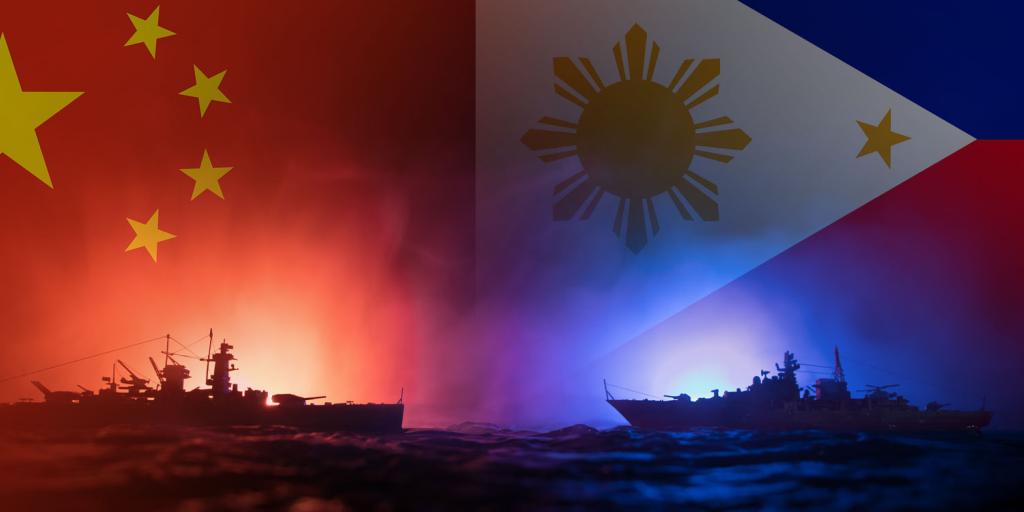
Tempers Flare in South China Sea
Reuters reports, “China again asked the Philippines to tow away a grounded warship—a World War Two-era vessel now used as a military outpost—from a disputed shoal on Tuesday, after Manila rejected Beijing’s earlier demand” (August 8, 2023). The shoal lies within the Philippines’ exclusive economic zone—the area of the sea around the Philippines in which the nation possesses special rights to economic exploration and development. The nation grounded the warship there in 1999 and posted soldiers on it to reinforce its claim to the shoal. A recent supply ship carrying food and supplies to the troops on the vessel was turned away by the Chinese coastguard.
Ferdinand Marcos Jr., the Philippine president, has turned to the United States for support in maritime disputes with China. This has further angered China and prompted the Chinese embassy in Manila to respond: “South China Sea is not a ‘safari park’ for countries outside the region to make mischief and sow discord.” As the Reuters article further noted, “China claims sovereignty over almost the entire South China Sea, which overlaps with the exclusive economic zones of Malaysia, Vietnam, Brunei, Taiwan and the Philippines.” The French and Japanese embassies in Manila also expressed concern about China’s recent actions and encouraged adherence to the 2016 “arbitral ruling that invalidated Beijing’s expansive South China Sea claims.” For China’s part, securing the South China Sea, and the trade it enables, from potential hostile intervention is critical to the nation’s economy.
While China has the military means to seize control of the shoal, international pressure discourages such a move. As politics in the South China Sea area become more polarized, powerful nations seem to be unable to work out their differences. Such actions not only divide nations, but also push other nations together against common foes. The Bible foretells a final configuration of three major international alliances at the end of the age that will oppose each other: the European “king of the North,” the Arab “king of the South,” and the “kings from the east” (Daniel 11:40–45; Revelation 16:12). All these coming political, economic, and military alliances will converge on the Holy Land in the years to come, climaxing in the long-foretold biblical “Armageddon.” To learn more about the end-time configurations of today’s nations and powers, be sure to read our free booklet Revelation: The Mystery Unveiled.



